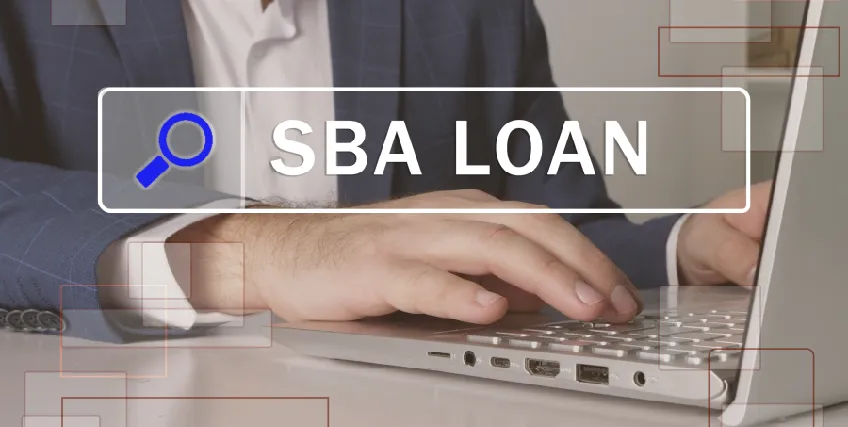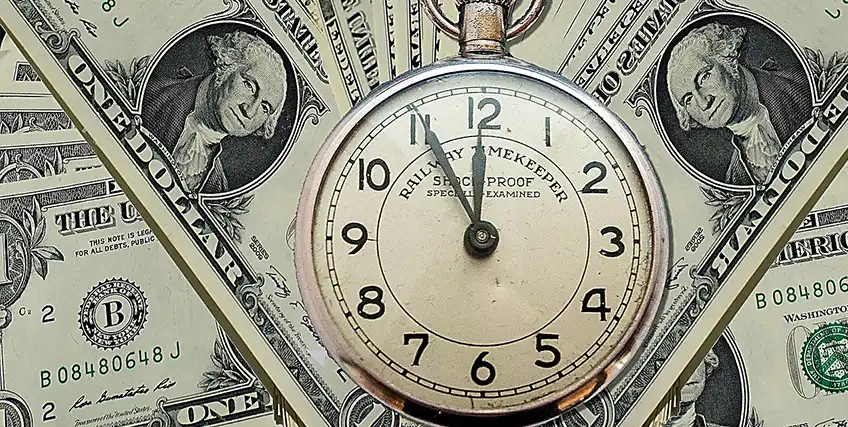Looking for Business Financing?
Apply now for flexible business financing. Biz2Credit offers term loans, revenue-based financing, lines of credit, and commercial real estate loans to qualified businesses.
Set up a Biz2Credit account and apply for business financing.
Whether you’re just starting out or you’re ready to grow, getting a small business loan can help any small business thrive. However, there are a variety of business loan types out there and every lender has different terms and conditions. If you’re not sure how to get a small business loan, the process can seem a little daunting from the outset.
Business loans can help entrepreneurs get the startup capital they need to launch a business, give them working capital to cover operating expenses, infuse cash into the business to navigate financial emergencies, or capitalize on business opportunities. Whatever the reason you need a loan, you’ll want to know how to get one. This guide will help you do just that, from determining your eligibility to applying for approval.
In this article:
What Will You Use the Loan For?
There are many different types of business loans, so the first step of getting a business loan is figuring out why you actually need a loan. The core questions you’ll need to answer include:
- What will you use the money for
- How much money you’ll need
- How long you’ll need funds for
Your answers to these questions will inform the type of financing you’ll need. Most conventional business loans allow you to use funds in whatever way you see fit, but you can also get loans for a variety of specific business purposes. For instance, equipment loans allow you to purchase industry-specific equipment and pay back a lender, just as you would with a car loan.
Whether you’re looking to get established as a business, take advantage of a business opportunity, gain some financial flexibility, or something else entirely, determining how you’ll use a loan is always the first step of getting a small business loan.
Quick Overview of Types of Loans and Lenders
Today’s lending market offers many loan types and lenders for specific business purposes. Most small business owners will have a range of options available to them depending on their financing and business goals. The right type of loan and lender for you comes down to how you plan to use the money.
Term Loans
The most common business loan type, a term loan is a lump sum payment made by a lender to a borrower that must be paid back, with interest, over a pre-negotiated term. Typically, you’ll pay back the loan in monthly installments across a several-year period. Most often, this term ranges from 3-7 years.
Most banks and credit unions offer term loans, as do digital funding platforms like Biz2Credit. Interest rates vary between lenders and largely depend on an applicant’s financial profile, including their credit score and the business’s financial reports.
Because many lenders won’t lend to a business that hasn’t been operational for at least a year, these are the best small business loans for those looking to finance a large purchase or business expansion. While traditional banks business loans may not be the best option for new business owners, online lenders are often better options as they have less stringent qualification requirements.
SBA Loans
Loan products backed by the U.S. Small Business Administration (SBA) are very similar to term loans, but with the added benefit that they’re partially guaranteed by the federal government. SBA loan products are offered by more traditional lenders like banks or credit unions and are great options for business owners because they have competitive interest rates and may have high maximums and long repayment terms.
The most common SBA loan types are SBA 7(a) loans which help small businesses cover business-related expenses like working capital, equipment purchases, acquiring real estate, and more. There are several types of 7(a) loans, but the maximum loan amount is $5 million with a maximum term length of 25 years.
The catch with SBA loans is that qualification requirements are very strict and your business will have to be in great financial shape.
Microloans
A compelling option for new business owners, if you only need a little bit of seed money to get started, microloans are small loans with short repayment periods. Lenders offer both conventional and SBA microloan options, usually with a maximum loan amount of $50,000. Because the loan amounts are lower, they’re easy small business loans for new companies without a demonstrated financial record, so long as the business owner has a strong credit score.
Working Capital Loan
Many online lenders and banks offer more flexible financing options like working capital loans. These short-term loans are intended to finance a business’s day-to-day operations. They’re especially popular among businesses that experience seasonal slowdowns or have cyclical sales periods because they allow a company to cover its expenses and debts for a period of time, and then pay the loan back when business heats up again.
Business Line of Credit
A cross between a working capital loan and a business credit card, a business line of credit is a revolving funding source that allows a business to draw upon a credit account when it needs money. When approved, your business will have a set maximum amount of money available. You only pay interest on what you use, so if you have a $20,000 credit limit and draw $3,000 to acquire a new copy machine for the office, you will only pay interest on that $3,000 amount rather than the $20,000 maximum. Once you pay that money (plus interest) back, you’ll have access to the full $20,000 again.
Business lines of credit are flexible business funding loans that may help businesses avoid significant long-term debt while still having access to capital when needed. They’re very useful to cover unexpected emergency expenses or essential costs like payroll when money is tight.
Commercial Real Estate Loan
Just as an individual might take out a mortgage to buy a house, businesses can take out commercial real estate loans to purchase property. Not all small businesses will be in the market to purchase property, but it’s worth knowing that if you’d like to buy a brick-and-mortar store or office space, getting a small business loan for that purpose is possible.
Equipment Loan
As we mentioned earlier, equipment loans are a common solution for businesses that need special equipment like construction vehicles, machinery, or commercial kitchen appliances. These loans are specifically for purchasing a piece (or pieces) of equipment, allowing a small business to acquire the equipment they need to operate while paying it off over time.
Revenue-Based Financing
Although it’s not actually a loan, revenue-based financing is another way of funding a small business. In this arrangement, a lender provides an upfront sum in exchange for a percentage of a business’s revenue going forward. Usually, there is a pre-negotiated maximum amount that the business will pay back to the lender over time. This is a good solution for businesses looking to grow and become profitable quickly.
Step-by-Step Guide of the Loan Process
The process of applying for a business loan is fairly similar regardless of the type of loan you’re applying for. After you’ve examined your business’s needs and determined how much money you need and whether you want a lump sum or a revolving line of credit, it’s time to start the process of getting a loan.
1.Examine Your Eligibility
Different lenders have different eligibility requirements for different types of loans. As we said earlier, online lenders tend to have less stringent requirements than traditional lenders, while SBA loans have the strictest requirements. For a term loan, typically you and your business will need to meet the following qualifications:
-
Time in business: Most lenders will require at least one year in business, while SBA regulations require two years. Online lenders may be less restrictive on this point, especially when considering microloans. Business credit cards, business lines of credit, and equipment financing tend to be more available to brand new businesses.
-
Credit score: Most lenders require a personal credit score of at least 600, while SBA loans often require a score of at least 650.
-
Business revenue: To qualify for large loan amounts, you may have to show annual revenue reports of more than $250,000. Again, microloans, business lines of credit, and business credit cards may be less restrictive in this regard.
-
Collateral: Most term loans and SBA loans are secured, meaning you must provide some collateral that the lender can claim if you fail to repay the loan. Some lenders may also require a personal guarantee, meaning if you default on the loan, the lender can claim your personal assets.
2.Shop Lenders
There are literally thousands of lenders to choose from, each with different loan products, interest rates, and terms. Generally, you want to find the lender that will give you the lowest interest rate, but you may also consider factors like funding speed and repayment period. You’ll have to figure out what the best terms are for your business. Each type of lender may have different benefits and drawbacks:
-
Traditional bank loans include term loans, lines of credit, commercial real estate loans, and more loan products with high maximums, long repayment terms, and competitive interest rates. However, new businesses will struggle to qualify, as will businesses with inconsistent revenue or business owners with poor credit. Applications tend to be extensive and funding times may be slow.
-
SBA loans can be used for a variety of business purposes and offer competitive interest rates and repayment terms. Although the SBA has strict qualifying requirements, strong applicants may find it’s actually easier to get an SBA loan than a traditional loan because lenders are more willing to approve well-qualified borrowers when they’re backed by the SBA.
-
Online lenders are good choices for new businesses, business owners with bad credit, or businesses that aren’t looking for multi-million dollar loans. They offer much more flexible terms than traditional banks and are more willing to work with your business to figure out terms that work for you. Some online lenders may have higher interest rates than traditional banks but typically have a faster approval process and can sometimes provide funding in as little as 24 hours.
3.Gather Documents
When you’ve found a lender and loan product you like, it’s time to gather the documentation you’ll need to get approved. You will likely need:
- Personal and business tax returns
- Business licenses
- Articles of incorporation
- Personal and business bank statements
- Profit and loss statements
- Financial statements
- Business plan
- Building lease, if applicable
Contact the lender before applying to make sure you know everything you’ll need before you start the application process.
4.Apply
Many lenders allow you to complete the business loan application process online. Depending on the loan product, you may not have to work with a person at all — the whole process may be automated. Larger term loans may require you to go to a bank in-person or work with a loan servicer.
Once you’ve submitted your application, you’ll wait for approval. When approved, you’ll receive a loan agreement from the lender. Sign it, and you should receive your funds quickly.
Conclusion
Getting a business loan can help your small business get off the ground, take advantage of a business opportunity, weather lean times, and a lot more. The best way to get a business loan really depends on your business’s specific situation. This guide can help you determine the best loan type for your business so you can shop for the best small business loan, gather the necessary documentation, and get approved for your funding.
FAQ for small business loans
How can a small business get a business loan?
There are many loan products and lenders available to small businesses. First and foremost, you’ll need to determine what kind of loan you need, considering how you plan to use the money. When you know how much you need and how you plan to spend the money, you’ll be able to narrow down lender options and apply for a business loan.
What does a small business need to apply for a loan?
To get approved for a conventional business loan, a business typically needs to have been operational for at least a year, have strong annual revenue numbers, and the business owner must have a personal credit score of at least 600. These requirements are more flexible for smaller loan amounts or for other funding options like business lines of credit.
What credit score does a small business need to get a loan?
To qualify for a business loan, a small business owner typically needs a credit score of at least 600, but it may be higher depending on the lender. Online lenders, however, may accept credit scores as low as 500.
Where can I get a small business loan?
There are thousands of lenders available to small businesses. Whether you’re interested in a more traditional lender like a bank or credit union, or a digital funding platform like Biz2Credit, there are many options to choose from when it comes to shopping for a small business loan. You’ll have to determine who the best lender is for your specific needs.




